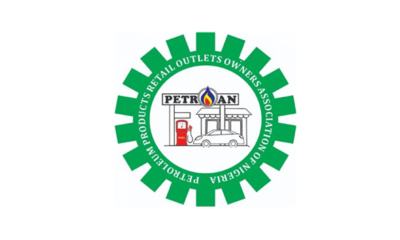Oil industry experts offered President Bola Tinubu recommendations on Tuesday, suggesting a gradual easing of the subsidy removal on Premium Motor Spirit, commonly known as petrol.
The advice stems from importers’ challenges in procuring United States dollars, which has led to significant repercussions for businesses.
Despite this, President Tinubu remained steadfast in his rejection of fuel price increases and the restoration of fuel subsidies.
Meanwhile, petroleum product marketers extended their counsel to the President by highlighting the Kenyan example as they emphasized that Kenya, in response to the adverse consequences of subsidy removal, had been compelled to reintroduce subsidies on petrol to mitigate the severe impact experienced by the citizens.
“Let them not do the needful, they will see the consequences. We learned this morning that Kenya, which equally removed subsidy and noticed that its effect was so hard on the citizens, has again resumed the subsidy regime for the period of two months,” the Secretary, Independent Petroleum Marketers Association of Nigeria, Abuja-Suleja, Mohammed Shuaibu, told our correspondent.
He added, “Government is about the people and it must have a listening ear. For Nigeria, how can we be an oil producing nation with four refineries and all of them are down. We now depend on imports.
“When he (Tinubu) announced that thing (subsidy removal), we said it was going to bring problems. Are we not feeling the consequences of that announcement now? It is forex that largely determines the cost of petroleum products here.
“Marketers are not willing to import products again, So if the government is going to relax the removal of subsidy for a while, it should better do that as a matter of urgency.”
Shuaibu argued that despite the fact that the Nigerian National Petroleum Company Limited announced earlier on Tuesday that it had no intention of increasing petrol price, the cost of the commodity would rise above its current N617/litre in weeks, if the exchange rate continues to increase.
“Relaxing subsidy removal is going to be a very wise decision right now, because going by the price of the dollar, the cost of petrol is bound to rise. In fact, some oil marketers are ready to join the labour union to protest,” he added.
Some dealers had said subsidy on petrol would gradually creep in, should the NNPCL continue to sell at N617/litre, particularly if the rise in forex rate persists.
The National Public Relations Officer, Independent Petroleum Marketers Association of Nigeria, Chief Chinedu Ukadike, said the outright removal of subsidy would cause severe hardship.
“I’ve been saying this even before subsidy on petrol was removed. How can you stop subsidy without anything on ground as palliatives?
“Trips that used to be N5,000 in the past and now over N15,000. Businesses are shutting down. The suffering is rising. The government has to intervene now,” he stated.
The IPMAN PRO had earlier explained that the price of imported commodities, including petrol, would continue to rise as far as the rate of exchange of the dollar increases.

 News3 weeks ago
News3 weeks ago
 Business3 weeks ago
Business3 weeks ago
 Technology3 weeks ago
Technology3 weeks ago
 Investment3 weeks ago
Investment3 weeks ago
 Banking Sector3 weeks ago
Banking Sector3 weeks ago
 Banking Sector3 weeks ago
Banking Sector3 weeks ago
 Appointments3 weeks ago
Appointments3 weeks ago
 Investment3 weeks ago
Investment3 weeks ago























